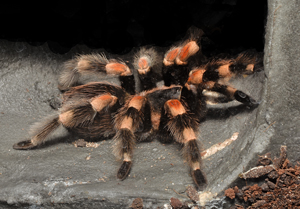
Join Us For a Legislative Day Celebration
Join us on Sunday, March 18 from 9:00 p.m. - 10:30 p.m. at the Hilton for a celebration featuring The Capitol Steps! The Capitol Steps began as a group of Senate staffers who set out to satirize the very people and places that employed them. In the years that followed, many of the Steps ignored the conventional wisdom, "Don't quit your day job!", and although not all of the current members of the Steps are former Capitol Hill staffers, taken together the performers have worked in a total of eighteen Congressional offices and represent 62 years of collective House and Senate staff experience. No matter who or what is in the headlines, you can bet the Capitol Steps will tackle both sides of the political spectrum and all things equally foolish. What more would you expect from the group that puts the "MOCK" in Democracy?! The Capitol Steps performance is included with your Legislative Day registration. Still need to register? Click here to register online and view the full program of events. Sponsored by Syngenta
Pest Management Foundation Requests Research Proposals
The Pest Management Foundation is requesting research proposals for funding consideration. Eligible entities include, but are not limited to institutions of higher learning, nonprofit organizations, and for-profit businesses. Suggested research topics of interest include, but are not limited to: • Bed bug surveillance and prevention The deadline for submitting proposals is Thursday, March 8, 2018. For details about the Pest Management Foundation research grant program, including details on how to apply click here. In last week’s ePestWorld newsletter, NPMA notified members about a so-called credentialing association named “National Pest Management Professional Association” or “NPMPA.” That “association” is not affiliated with the National Pest Management Association (“NPMA”) in any manner. The names “National Pest Management Professional Association” and “NPMPA” are likely intended to create confusion with NPMA, whose trademarked name is registered with the U.S. Patent and Trademark Office, and thereby mislead pest control companies and their customers in violation of trade mark law 15 U.S.C. §§1051 et seq. NPMA is exploring its legal options. Meanwhile, please let us know immediately if you are contacted by anyone claiming to represent the “National Pest Management Professional Association” or “NPMPA,” or become aware of any pest control company using either of those phrases in its advertising. Each year, NPMA works diligently to identify and recruit members to serve on our association’s standing committees. In an effort to foster fresh ideas and allow all NPMA members to share their expertise, we are calling on you to nominate yourself or an industry colleague to serve on an NPMA committee during the 2018-2019 membership year (July 1, 2018 – June 30, 2019). Your involvement and leadership will help us chart a successful future for the association and the industry. Please take a moment to view the list of standing NPMA committees and complete an application. The majority of NPMA committees meet face-to-face three times per year in conjunction with NPMA's Legislative Day in Washington, D.C., NPMA Academy and PestWorld. Committee Conference calls are scheduled as needed but don’t typically exceed once per month. Please note: Committee appointments are for a 2 year term. We ask that all committee members attend at least two thirds of face-to-face meetings and teleconferences per year. Additionally, the incoming NPMA President makes final appointments of individuals to all NPMA committees.
Ask the Expert: Question of the Week
Q: Clients regularly disregard my sanitation protocols, often making problems worse. How do I get them to follow my recommendations? A: When tackling a pest problem, your client can be your biggest ally or your greatest obstacle. Their willingness to comply with your guidelines can dramatically influence the speed at which many pest problems are resolved. For example, an account that is kept clean and organized can facilitate inspections and minimize pest harborage, reducing the likelihood of an infestation. On the other hand, a home with overflowing garbage cans and cluttered rooms will provide pests with the food and harborage they need to thrive. In order to get your clients to buy into your protocol, they must understand why they are being asked to follow your recommendations. Otherwise, they are likely to view your guidelines as a burden because of the extra work they are being asked to do. Take the time to explain how your sanitation protocol reduces pest problems. For example, explain how the smallest food spills can compete with insecticide baits, reducing their effectiveness. Or, show them how a cluttered closet can be difficult to inspect and can provide abundant harborage for pests. When your clients understand the benefit of sanitation, they are far more likely to comply with your recommendations. Email Brittany Campbell, NPMA’s staff entomologist, for answers to your most challenging questions. Include your name and company’s name to have your question potentially featured in the next ePestWorld!
Accord Pest Solutions of Yuba City, CA
Mexican Red-Kneed Tarantula As a membership benefit, NPMA has developed a gallery of NPMA realizes that the costs associated with keeping a fleet of trucks and vehicles on the road is an expensive proposition, especially the fuel cost to keep the equipment running. To help NPMA members save money on this expense item we have established relationships with Exxon/Mobil and Shell gas stations to offer participating members fuel discounts on their monthly fuel purchases. Click here for more information on this member service.
Monday, March 12, 2018 from 2:00 - 3:00 PM ET Monday, June 4, 2018 from 2:00 - 3:00 PM ET Monday, September 10, 2018 from 2:00 - 3:00 PM ET Tuesday, December 4, 2018 from 2:00 - 3:00 PM ET The Virginia Wildlife Damage Management Association is holding a Spring Training Event for wildlife control operators. The event will be held March 22 - 24, 2018 and will include two training events. In addition, the NWCOA Certified Basic Wildlife Control Operator course will be presented on March 23 & 24th. This is a 2-day, comprehensive training on animal exclusion and control methods, animal handling, safety and disease awareness and prevention for a wide array of wildlife species typically encountered when performing wildlife control services. Click here for a brochure and printed registration information. For additional information call 540-374-5600. Greensburg Daily News
|
|||||||||||||||||||||||||||||||||||||||||||||||||||||||
| Archive | Printer Friendly | Send to a Friend | PestWorld Magazine Online | www.npmapestworld.org |











